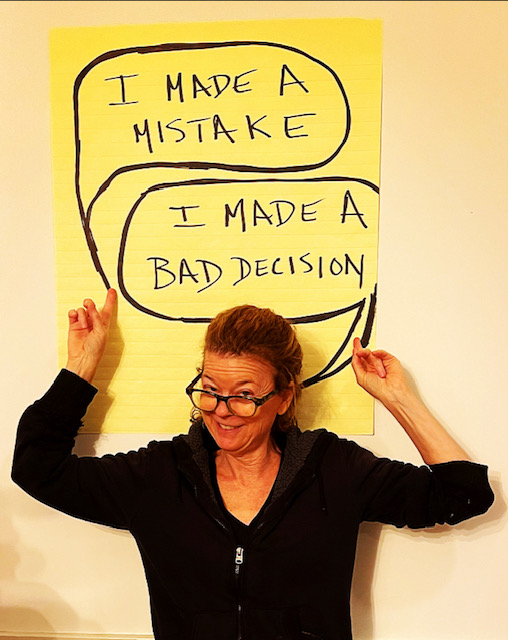
This past August, The New Yorker published an article on a support group for white-collar criminals.
The piece offers a lot to consider, but the thing that’s been taking up the most space in my brain is the distinction between a mistake and a bad decision.
In the words of Tom Hardin, otherwise known as Tipper X,
“A mistake is something we do without intention. A bad decision was made intentionally. If you’re classifying your bad decisions as mistakes, you’re not accepting responsibility.”
Let’s take a moment to consider an of-the-moment application of this distinction: the cooking of this week’s rotund bird.
Say you look at numerous websites and cookbooks all of which state that the best temperature at which to cook your bird is 350 degrees.
Nevertheless, you decide – decide—that everyone is incorrect and set the temperature to 500.
If, when that poor, burnt bird arrives on the table you say, “Oh, I made a mistake,” you are not being accountable.
It was not a mistake.
A mistake would have been you forgot to put on your reading glasses and thought you’d set it to 350 and instead set it to 500.
Why is this important?
Because most of us are likely to continue making mistakes; and more than a few of us (and let me be the first to put my hand in the air) are likely to make some bad decisions.
But if we have clarity on the distinction between these two things we can ensure our appropriate level of accountability.
And move briskly along to clean up.
To learn more about HOW to clean up, take a look at, “Throw Your Hand in the Air Like You Just Do Care: Tips for an Effective Apology”
